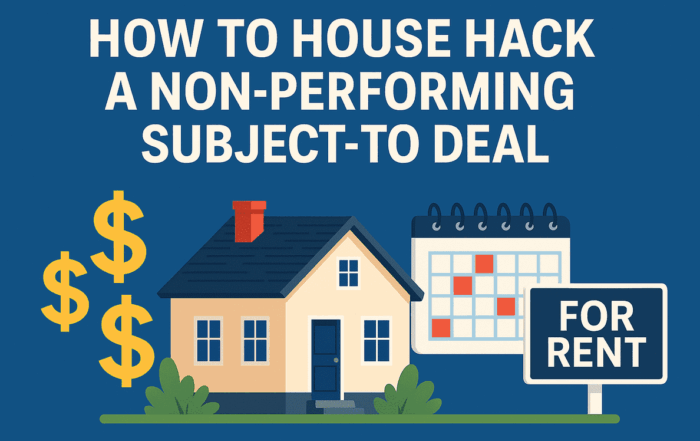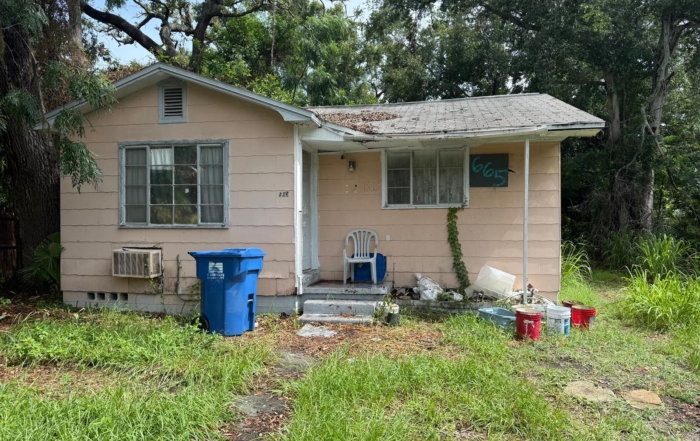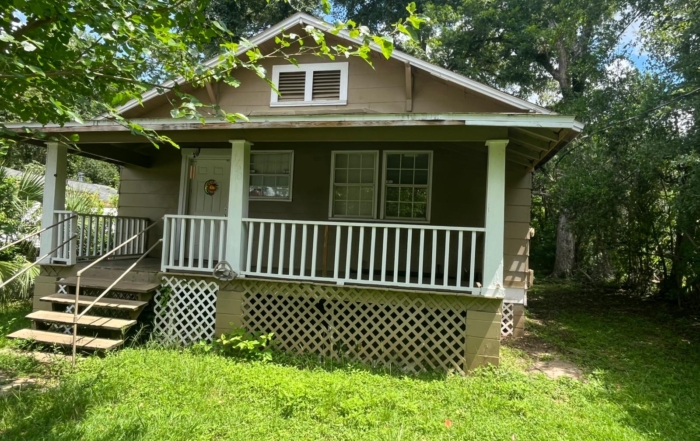
House Hack with a Trust: How to Qualify Your Primary Homestead for Exemption in Florida
House hacking is a hot topic among real estate investors, offering a smart way to live for less by renting out part of your property. But if you’re holding that property in a trust, you might be wondering if you can still get Florida’s homestead exemption, a major perk that saves you money on property taxes and shields your home from most creditors. The good news is yes, it’s possible—but there are a few important rules to follow. This guide will walk you through what you need to know about using a trust for house hacking in Florida while still qualifying for the homestead exemption.
What is House Hacking, and Why Use a Trust?
Let’s break down house hacking and why adding a trust to the equation is a smart move.
-
House Hacking: This is when you live in one part of a property, like a duplex, triplex, or even a single-family home with a basement or extra rooms, and rent out the rest. The rent you collect helps cover your mortgage and other property expenses, making homeownership more affordable and often profitable.
-
Why Use a Trust? Many investors use trusts for privacy, protection, and flexibility. A trust can keep your name off public records as the owner, give you more control over how the property is managed, and make it easier to pass the property to others without going through probate (a lengthy legal process after death). For house hackers, using a trust means extra asset protection and peace of mind.
Florida’s Homestead Exemption: The Basics
Florida’s homestead exemption is a valuable benefit that can save you thousands on property taxes and offers protections if creditors come after you. But it’s only available if the property is your primary residence, which means the place you live most of the year.
Here’s a quick overview of the benefits:
- Property Tax Savings: The homestead exemption can reduce the taxable value of your home by up to $50,000, lowering your tax bill significantly.
- Protection from Creditors: Florida’s homestead laws provide a shield for your primary residence, which means most creditors cannot force the sale of your home to pay off debts.
Qualifying for the Homestead Exemption: To qualify, you must:
- Live in the Property: It has to be your main residence.
- Own the Property in Your Name or a Qualifying Trust: If it’s in a trust, there are a few specific rules to meet.
- Occupy the Property on January 1st: You need to be living in the property on January 1st of the tax year in which you’re applying for the exemption.
Can You Qualify for Homestead Exemption Using a Trust?
Yes, but with some fine print. Florida law allows homeowners to apply for the homestead exemption on properties held in a trust. The key is that the trust must give you what’s called a “present possessory interest for life” in the property, which is legal-speak for “the right to live there for as long as you want.”
Requirements for Trusts:
- Life Interest: The trust document needs to state that you, as the beneficiary, have the right to live in the property for life. This gives you an “equitable title,” which essentially counts as ownership.
- Right to Use as a Primary Residence: The trust has to make it clear that you can use the property as your primary home.
Consulting a real estate attorney can help ensure your trust is set up correctly to meet these criteria.
Step-by-Step Guide to Qualifying for Homestead Exemption as a House Hacker Using a Trust
-
Set Up or Amend the Trust: If you don’t already have a trust, create one that includes a clause allowing you to live in the property for life. If you already have a trust, make sure it meets Florida’s requirements for homestead exemption.
-
Transfer the Property into the Trust: You’ll need to record the property deed in the trust’s name. This means filing a new deed with your county property records office, where they’ll update the ownership to show the trust.
-
Apply for Homestead Exemption:
- Visit the Property Appraiser’s Office: Go to your local county property appraiser’s office with your deed and trust documents.
- Bring Proof of Primary Residency: This can include a driver’s license showing your address, utility bills, or voter registration.
- Explain Your Ownership Through a Trust: Let them know you’re the beneficiary of a trust and that it grants you a life interest in the property. Complete any forms they provide and submit your documentation.
Why House Hack with a Trust? Key Benefits for Investors
- Lower Property Taxes: Homestead exemption can save you money on property taxes every year.
- Asset Protection: Trusts keep your personal information private and offer a layer of security against personal creditors.
- Privacy: In Florida, trust ownership can help keep your name off public property records, making it less obvious that you own the property.
Common Mistakes to Avoid
- Improper Trust Structure: If the trust doesn’t give you a life interest or allow you to live there as your primary home, you won’t qualify. Check with a legal professional to avoid this costly error.
- Missing Documentation: Make sure you have your trust paperwork, a recorded deed, and proof of primary residence ready to go.
- Late Applications: You need to file for the exemption by March 1st to apply for the current tax year. Don’t miss the deadline!
Real-Life Example: House Hacking with a Trust in Action
Let’s say you bought a duplex, live in one unit, and rent out the other. You set up a trust that states you have a lifetime right to live there. You then transfer the property into the trust and apply for the homestead exemption. Now, you’re saving on taxes, protecting your asset, and getting rental income—all in one setup. This is a great way to maximize returns, minimize risks, and keep your personal financials secure.
Tips for Working with Local Authorities and Advisors
- Stay Organized: Bring all documents, like trust papers, proof of residency, and your deed, to the county office. Keeping your records organized makes the process smoother.
- Ask Questions: Local property appraiser offices can clarify specific requirements and often provide free guidance on what’s needed.
- Work with a Real Estate Attorney: An attorney can help draft your trust to meet Florida’s homestead rules and avoid any future complications.
Conclusion
House hacking with a trust in Florida is a smart, flexible way to protect assets, reduce property taxes, and keep your finances private. By structuring your trust to meet homestead requirements, you get all the perks of house hacking while enjoying tax savings and asset protection. Just remember to create or update your trust carefully, transfer the deed, and apply for the homestead exemption on time. With these steps in place, you’ll have a setup that maximizes both your investment potential and peace of mind.
OUR BEST ARTICLES
How to House Hack a Non-Performing Subject-To Deal (and Get Paid to Wait) HNPS
Jorge Vazquez2025-07-03T19:51:05+00:00July 3rd, 2025|Comments Off on How to House Hack a Non-Performing Subject-To Deal (and Get Paid to Wait) HNPS
Ever wanted to buy a house, cash flow from day one, and help someone in trouble—without taking [...]
For Sale: 665 36th Ave S, Saint Petersburg, FL 33705
Jorge Vazquez2025-07-03T18:05:29+00:00July 3rd, 2025|Comments Off on For Sale: 665 36th Ave S, Saint Petersburg, FL 33705
Property Details: • Address: 665 36th Ave S, Saint [...]
The Power of Home Equity: Utilizing Your Property’s Value
allanmcnabb2025-07-01T20:40:35+00:00July 1st, 2025|Comments Off on The Power of Home Equity: Utilizing Your Property’s Value
Your home is more than just a place to live; it’s one of the most significant financial [...]
Graystone Real Estate Expands into South Florida via Miami MLS
Jorge Vazquez2025-07-01T00:47:05+00:00July 1st, 2025|Comments Off on Graystone Real Estate Expands into South Florida via Miami MLS
Graystone Real Estate Expands into South Florida via Miami MLS FOR IMMEDIATE RELEASE June 30, 2025 TAMPA, FL — [...]
For Sale: 1046 Dover St, Tallahassee, FL 32304
Jorge Vazquez2025-06-30T18:14:58+00:00June 30th, 2025|Comments Off on For Sale: 1046 Dover St, Tallahassee, FL 32304
Property Details: • Address: 1046 Dover St, Tallahassee, FL [...]
Protected: Here’s How to Get Assignment Fees Financed (Even When Lenders Push Back)
Jorge Vazquez2025-07-01T20:45:37+00:00June 30th, 2025|Comments Off on Protected: Here’s How to Get Assignment Fees Financed (Even When Lenders Push Back)
This content is password protected. To view it please enter your password below: Password:
Ready to take your real estate investing knowledge to the next level? Join our Property Profit Academy today! https://www.propertyprofitacademy.com

Meet our Team of Experts!
Meet Cody Bergstrom, Your Expert in Finding Deals
My team and I have over 20 years of experience in real estate. We have strong relationships with wholesalers, probate lawyers, sellers, and others in Florida. I aim to align your investments with your vision and deliver exceptional results. Contact Vanessa to schedule a meeting: https://graystoneig.com/cody
Meet Marylyn Patankar, Your Property Manager Partner
Hello, I’m Marylyn Patankar, the Field Manager and New Client Ambassador at Graystone Property Management. I educate investors about our perks, onboard new landlord investors, and manage on-site operations. Schedule a meeting with me here: https://graystoneig.com/marylyn

Meet Lisa Kaye Price, the LendingGig Top MLO
Lisa-Kaye Price – Real Estate Lending Specialist
With 20 years in real estate, Lisa-Kaye is dedicated to helping clients achieve their investment goals through strategic financing. She and her team focus on securing the best financing solutions to maximize leverage – a unique advantage of real estate investing.
Offering various options, including conventional loans, asset-backed and private money solutions, and programs for foreign nationals, Lisa’s expertise ensures clients get the support they need, whether buying new properties or refinancing.
Schedule a meeting with Lisa: https://graystoneig.com/lisa-kaye-price








